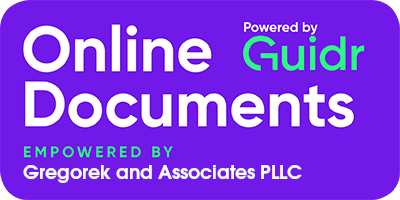Blog
An Estate Plan Keeps You in Control
An estate plan is a powerful tool that allows you to maintain control over various aspects of your financial and personal affairs, even in situations where you may be unable to make decisions yourself. Here’s how an estate plan keeps you in control:
Decision-Making During Incapacity
- Health Care Directive: An estate plan can include a healthcare directive or a durable power of attorney for healthcare. These documents allow you to appoint a trusted individual (your healthcare proxy) to make medical decisions on your behalf if you become incapacitated and are unable to communicate your wishes. This ensures that your healthcare preferences are followed, preserving your control over critical medical decisions.
Financial Management
- Durable Power of Attorney: Through a durable power of attorney for finances, you can designate an agent to manage your financial affairs in case you become incapacitated. This agent can pay bills, manage investments, and make financial decisions according to your instructions, preserving your control over your assets and financial matters.
Asset Distribution
- Wills and Trusts: A well-crafted will or trust allows you to dictate how your assets will be distributed after your passing. By specifying beneficiaries, designating the portions of your estate each will receive, and providing detailed instructions, you maintain control over who inherits your assets and how they are allocated.
Guardianship for Minor Children
- In your estate plan, you can name a guardian for your minor children in the event of your incapacity or death. This ensures that someone you trust will have legal authority to care for and make decisions regarding your children, preserving your control over their well-being.
Minimizing Family Conflicts
- Estate planning documents can include clear and unambiguous instructions regarding asset distribution, reducing the potential for family disputes and ensuring your wishes are followed precisely.
Privacy and Asset Protection
- Some estate planning strategies, such as certain types of trusts, offer privacy and asset protection benefits. By structuring your estate plan strategically, you can shield assets from creditors and legal claims, keeping your wealth under your control and protection.
Legacy and Charitable Giving
- If you have specific charitable intentions, your estate plan allows you to create a legacy by leaving gifts to charitable organizations or causes you care about. You maintain control over the charitable impact of your assets even after your passing.
Business Succession
- For business owners, an estate plan can include provisions for the orderly transition of the business to chosen successors. This ensures that your business continues to operate according to your vision and values, even after you’re no longer actively involved.
What if I Don’t Have a Plan in Place?
Not having an estate plan can lead to a range of consequences that may significantly impact you and your loved ones. Without a clear plan in place, state laws will dictate the distribution of your assets, potentially resulting in outcomes that do not align with your wishes. Family disputes and legal challenges can arise, leading to prolonged and costly court battles. Moreover, the absence of healthcare directives can leave your medical decisions in the hands of strangers rather than trusted individuals.
Work with an Experienced Estate Planning Attorney
We understand that navigating the complexities of estate planning can be a challenging journey. You don’t have to go through it alone. We are here to provide guidance and support, making the journey more manageable and ensuring your goals are achieved. Call Gregorek & Associates at 425-284-3450 or fill out our contact form and we will be in touch to schedule a meeting.
